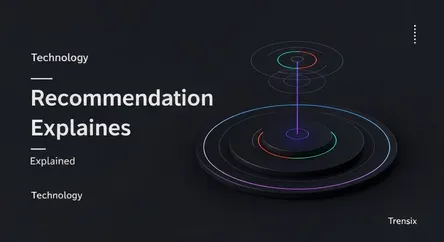Technology
Recommendation Engines Explained

Discover how AI-powered recommendation engines personalize your online experience by suggesting products, movies, and content you'll love.
What is it?
A recommendation engine is a sophisticated AI-powered tool that predicts what a user might like. It's a type of information filtering system that analyzes data to make personalized suggestions for items such as movies, music, or products. These systems primarily use two methods: collaborative filtering, which recommends items based on the preferences of similar users, and content-based filtering, which suggests items based on their attributes and a user's past choices. Many modern systems use a hybrid approach, combining both techniques to provide more accurate and diverse recommendations.
Why is it trending?
Recommendation engines are the backbone of the modern personalized web. As digital platforms like Netflix, Amazon, and Spotify have grown, so has the need to sift through vast amounts of content. These engines are trending because they solve the problem of choice overload, keeping users engaged by serving up relevant content. They drive sales, increase watch time, and boost customer loyalty. Advances in machine learning have made them more powerful and precise, enabling businesses to create highly tailored user experiences that feel unique to each individual.
How does it affect people?
This technology profoundly impacts daily life by shaping our digital consumption habits. It influences what we buy, watch, listen to, and even read. On the plus side, it helps people discover new products and artists they genuinely enjoy, making navigation of the digital world more efficient and enjoyable. However, it can also create "filter bubbles" or "echo chambers," where individuals are only exposed to content that aligns with their existing views. This can limit exposure to diverse perspectives and unintentionally reinforce personal biases, subtly influencing opinions and choices over time.